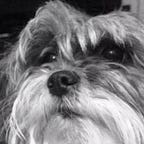Football and Chess: Opening Moves
“By the time a player becomes a Grandmaster, almost all of his training time is dedicated to work on this first phase. The opening is the only phase that holds out the potential for true creativity and doing something entirely new.” -Grandmaster Gary Kasparov
An opening in chess is a series of common opening moves. Chess can have an insane number of board positions possibilities. The game progresses to a point in games so no two games are alike. Openings have only so many possible moves. Great chess players have trained and memorized major openings. Watching grand masters play vs even above average players usually comes down to how quickly the average player makes an exploitable move during an opening.
There are easily 3000+ openings. However there are 50–100 common ones.
I recently watched a game in which an offensive coordinator clearly had setup an advantage in the first drive the opening. His team methodically moved down the field 3–6 yards at a time and scored.
I don’t think he had a script. He had played out the opening of that game in his mind enough that he had all the answers. A precise and effective opening.
I have generally tried to use openings in offensive play calling that are aggressive. Use 2–3 plays to setup an early explosive passing play. My thought process is that unlike chess you will rarely lose the game based on a bad opening. It’s certainly not without exploits. A bad offensive opening can be deflating to a team. A skilled opponent would try to give a team a higher chance to make a turnover. Even worse, I’ve put time and energy into an opening that only sets up itself. A more methodical opening, rather than “setup a shot”, would probably produce ideas, plans, and plays that can be effective throughout the game. My time thinking and working on an opening would not be as wasted.
What are the openings you like? Your opponent likes? Often times we look at an offense and say “This is what their base is” and prepare for that base as the opening.
Our assumptions of the opening are easily biased.
The grandmaster on a chess board has only his mind to think about. His preparation is independent. In film how often do they use variants of what we assume is “base”. What have you done to prepare for that? A football coaches preparation is dependent on preparing players. We can describe it as “The opponent will do this.” Because thinking slows down players. We can practice the variations. Guide our players into the openings we expect.
One thing I’ve found that is effective with my “setup and shot” is most players (offense and defense) can’t help but be aggressive early. It requires discipline on the defense. And on the offense it plays to expectations. Call a pass early with a younger QB and guess what he will do — ignore the read he’s ought to do. And throw to the target that is going further down the field. Common Chess openings have names. If openings in football had names mine would probably be called or “the overly hopeful gambit.” I’ve also found that some teams don’t adjust to my opening. It’s repeatable, I’ve had situations where it’s worked 3 or 4 times in a row because who opens the next series with a shot after last time. 21 points after 8 plays feels good. Feeling crafty, even if it hasn’t been crafty is fun. Crafty is fun might be the thing that drives many offensive minded coaches.
What is the way of your opening? Is that why a good fit for your team, your culture, your opponent. If you teach process, consistency, and improvement over time does the opening reflect that. If your players respond well to and are aggressive, have you focused your opening towards that? Is it possible that a team exists with enough underdog mentality that struggling early will set them up for success?
The point is to know the openings and that doesn’t require watching any specific opponent. Opening drives. Opening defensive choices are easy to watch and learn from because they require no background to the rest of the game.
Football is compared to Chess regularly. And few coaches I’ve met play chess.
